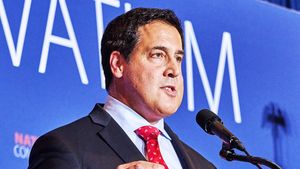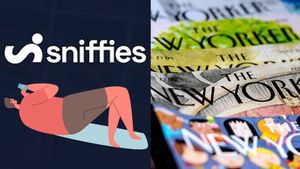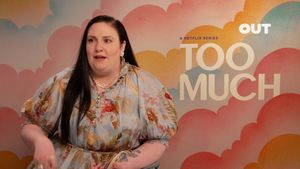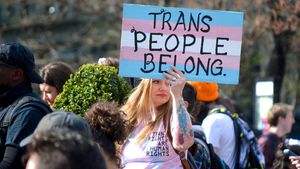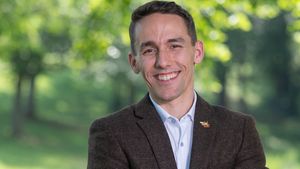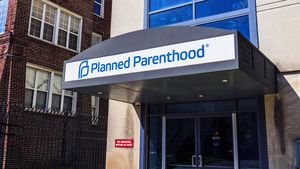Treatment GuideJust DiagnosedSex & DatingAfrican AmericanStigmaAsk the HIV DocPrEP En EspañolNewsVoicesPrint IssueVideoOut 100
CONTACTCAREER OPPORTUNITIESADVERTISE WITH USPRIVACY POLICYPRIVACY PREFERENCESTERMS OF USELEGAL NOTICE
© 2025 Pride Publishing Inc.
All Rights reserved
All Rights reserved
Scroll To Top
By continuing to use our site, you agree to our Privacy Policy and Terms of Use.
Shame is dangerous. I have shared this warning before when reflecting on its presence in my life and the catalog of symptoms it spawns -- isolation, substance abuse, depression, and more. The list is a veritable litany of loneliness and disenfranchisement. Several HIV Plus readers have contacted me recently, expressing appreciation for the emotional honesty in my columns. And while I am a therapist -- and therefore have some reticence to reveal such intimate details about myself in such a public venue -- I am first and foremost a human traveling on the same journey as you. And it's imperative to reveal that I often struggle with a very human condition -- shame -- in order to heal (and help others do the same). You see, in addition to some of the symptoms I've listed above, shame also often results in hiding -- from friends, from family, from reality, even from oneself. So revealing my vulnerabilities helps free me from the self-imposed prison shame too often tries to trap me inside. In my training as a therapist I was taught to assess the impact of stigma and its related shame. Specifically, I was taught to ask some of the following questions: ' How many friends of a similar background or condition does one have? ' How much time did one spend with one's family, peers, community? ' How much was one willing to learn about the history or shared sense of identity with one's peers? The questions make perfect sense: If one is ashamed by one or more aspects of himself or herself, one typically avoids intimate relationships or even friendships with people sharing similar characteristics. They remind us of our own vulnerabilities that we would rather not deal with. Perhaps this is why group therapy and support groups such as 12-step programs or those focusing on HIV or cancer are so helpful and so strongly recommended by therapists. They help one to not feel like an outcast clinging to the notion that others won't understand or 'get' what they're struggling with. Groups also can help break down that prison of isolation where one can pretend problems don't exist or that they can be easily handled alone. Lately, I've recognized the depth of my own desire to hide that which I consider dirty or broken. It's as though I truly believe that if I pretend everything is OK, then everything becomes OK. It's also an extension of the mistaken belief that I often fall prey to -- that people will not like me if I reveal who I really am. The source of my growing confidence that allows me to share what's going on inside me is actually rooted in the sharing one can experience from group therapy or a support group. It provides an experience of nonjudgment and acceptance. And, just as important, it offers a consistent and powerful reminder that no one is alone and that there is no need to cower in isolation. (Although I need constant reminders of this fact; what was learned in 35-plus years does not go quietly into that dark night!) For those of you who find yourselves cowering in isolation and shame, I encourage you to take the brave step of joining a group of like-minded individuals. It very well might hold the key to unlocking your own prison. How remarkable would that be? Fransen is a licensed clinical social worker who is in private therapy practice in Chicago. He welcomes feedback at stillpoint4003@yahoo.com.
From our Sponsors
Most Popular
BREAKING NEWS: Trump admin moves to end federal HIV prevention programs
March 18 2025 6:10 PM
Grindr is reminding us why jockstraps are so sexy and iconic
May 02 2025 5:36 PM
Trump's orders prompt CDC to erase HIV resources
January 31 2025 5:29 PM
Celebrating Black History Month with our annual African American issue
February 01 2025 3:28 PM
Discover the power of Wellness in your life
March 26 2025 12:41 PM
Plus: Featured Video
Latest Stories
The Talk: Starting the conversation
July 25 2025 4:47 PM
BREAKING: Supreme Court rules to save free access to preventive care, including PrEP
June 27 2025 10:32 AM
VIDEO: A man living with HIV discusses his journey to fatherhood
June 10 2025 4:58 PM
500,000 Children at Risk: PEPFAR Funding Crisis
April 08 2025 3:51 PM
Season 4 of The Switch on resilience & radical self-love returns this spring
March 26 2025 12:20 PM
Gerald Garth is keeping people of color happy and healthy through trying times
March 11 2025 3:38 PM
Thanks to U=U, HIV-positive people can live long, happy, healthy lives
July 25 2025 2:37 PM
How the Black AIDS Institute continues to fill in the gaps
July 25 2025 1:06 PM
1985: the year the AIDS crisis finally broke through the silence
June 26 2025 11:24 AM
HRC holds 'die-in' to protest Trump health care cuts
April 28 2025 2:11 PM
Broadway's best raise over $1 million for LGBTQ+ and HIV causes
April 03 2025 7:15 PM
“I felt like a butterfly”: Niko Flowers on reclaiming life with HIV
July 23 2025 12:22 PM
Dancer. Healer. Survivor. DéShaun Armbrister is all of the above
July 02 2025 8:23 PM
Trump admin guts $258 million in funding for HIV vaccine research
June 03 2025 3:47 PM
Two right-wing Supreme Court justices signal they may uphold access to PrEP and more
April 21 2025 4:10 PM
The Talk Season 5 premieres this spring with HIV guidance for the newly diagnosed
March 26 2025 1:00 PM
Jess King is here to help you live your happiest, healthiest life yet
March 24 2025 4:35 PM
Trending stories
Recommended Stories for You


































